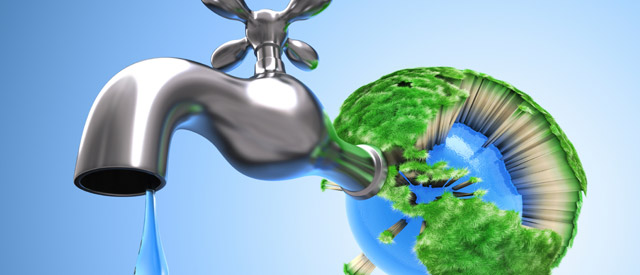 Sustainable Lebanon: preserving natural resources for the future
Sustainable Lebanon: preserving natural resources for the future
There are some problems that are more complicated than others, and some problems that are more common than others. Unfortunately, when it comes to disease, complex diseases are also the most common ones.
Over-forested and degraded land is threatening the country's wealth of biodiversity. Agricultural lands for olive orchards and other crops are being damaged. Unregulated quarrying has deteriorated coastal mountain ecosystems and soil quality. And, only a small portion of solid waste is being recycled or composted.
These trends are having effects across society and the economy, impacting health, energy agriculture, production, transportation and tourism.
In 2011, an EU-funded project began an in-depth analysis of these challenges with an eye toward developing long-term solutions. Whether speaking of the lush Yammouneh Valley, the threatened bottlenose dolphin, pristine forestlands or Lake Qaraoun, Lebanon has a long list of treasures in need of preservation.
The project – "Improving National Assessment and Monitoring Capacities for Integrated Environmental and Coastal Ecosystem Management," or INCAM – is being led by the prestigious National Council for Scientific Research (CNRS) in Beirut.
The two-year project, which is supported by €500,000 in European Commission funding, includes as partners the Institute of Research for Development in France and the Mediterranean Agronomic Institute of Bari in Italy.
The initiative not only reflects the EU's growing cooperation with its neighbours in Mediterranean-wide research efforts, but also an evolving environmental consciousness in Lebanon.
"If you would talk to people on the street, many would say that they lack confidence in our ability to manage natural resources and protect the environment," said CNRS researcher Elise Noujeim. "But recently, sensitivity toward the environment has been growing. A new generation is becoming aware about issues such as energy and recycling. And as a country, we are trying to do as much as possible."
The main objective of the INCAM project is strengthening CNRS' capacities and expanding staff training and education – all directed toward transforming the institute into a centre of excellence. The ultimate goals are to find solutions for Lebanon's environmental challenges, broaden the role of government decision-makers, and even redefine the country's own understanding of what it means to live and work sustainably.
The foundation of INCAM is an exhaustive environmental inventory of the country – on land, in the sea and, most importantly, along the coast. "We have collected as much information as possible about our natural resources," Noujeim said. The inventory itself is built upon an extensive database being supported by CNRS' French partner, the Institute of Research for Development.
With a complete inventory, Noujeim said, CNRS will develop a five-year roadmap to improve the protection and management of the country's natural resources. INCAM's research will assess the current condition of natural resources, support sustainable development, and improve integrated resource management with special attention on coastal and marine ecosystems.
The environment will not be the only beneficiary of INCAM. CNRS staff members will attend training sessions at EU research institutes, and the project is expected to stimulate interest among students to pursue advanced degrees in environmental disciplines.
From a European perspective, the INCAM project stands to provide a wide range of benefits. CNRS' Italian partner, the Mediterranean Agronomic Institute of Bari, will distribute the project's findings throughout the European research community. An EU-Lebanon knowledge-sharing system will be built, Euro-Mediterranean research and training collaboration will be enhanced, and INCAM's findings will assist the European Commission in developing future policies.
Project details
- Project acronym: INCAM
- Participants: Lebanon (Coordinator), France, Italy
- Project FP7 N° 265419
- Total costs: € 600 000
- EU contribution: € 500 000
- Duration: January 2011 to December 2012
| Contact information | n/a |
|---|---|
| News type | Inbrief |
| File link |
http://ec.europa.eu/research/infocentre/article_en.cfm?id=%2Fresearch%2Fstar%2Findex_en.cfm%3Fp%3Dss-incam&calledby=infocentre&item=Infocentre&artid=29918 |
| Source of information | EC DG Research & Innovation |
| Subject(s) | NATURAL MEDIUM |
| Relation | http://www.emwis.net/countries/fol749974/country958156 |
| Geographical coverage | Lebanon, |
| News date | 22/05/2013 |
| Working language(s) | ENGLISH |
 you are not logged in
you are not logged in





